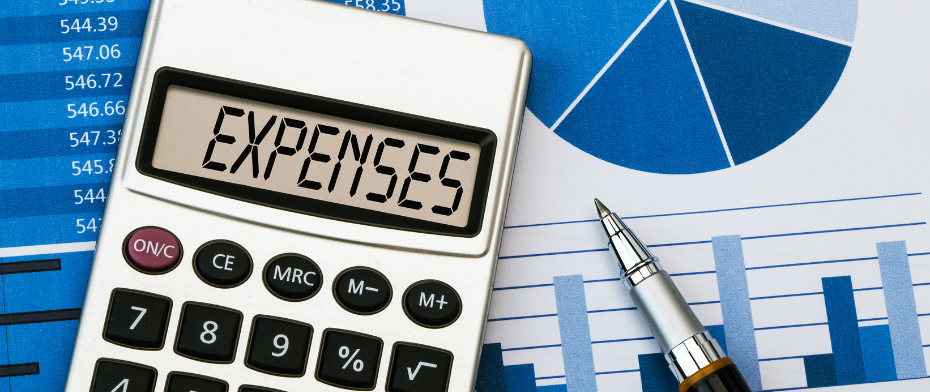The British rental market is booming. What should landlords be aware of?
- TBA

- Mar 15, 2024
- 6 min read
Updated: May 29, 2025
The British property market has always been favoured by investors both in the UK and across the world, with many taking part in the buy-to-let market. Due to the impact of the pandemic, the rental market experienced a period of cooling for two years.
However, this situation only lasted until the 2021 fiscal year. At the beginning of that year, the UK rental market underwent a transformation and started booming again.
The latest report from the Royal Institution of Chartered Surveyors (RICS) shows that there has been steady monthly growth in tenant housing demand since November last year, while the supply of properties available from landlords has been gradually declining.
From early 2022, there has been an imbalance between the supply and demand in the UK’s private rental sector, leading to continuous rent increases.
Data shows that by August 2022, private rental prices in England increased by 3.4%, marking the largest annual growth rate since January 2016. Additionally, Wales saw an increase of 2.5%, and Scotland saw an increase of 3.6%.
Although rental prices in London have been recovering somewhat slowly, there has been a noticeable uptick. By August 2022, private rental prices in London had increased by 2.5%, marking the strongest annual growth in London since October 2016. With an increasing number of new tenants, now may be the best time for landlords to enter the real estate market, as high rental demand can provide good investment returns.
If you are a first-time landlord entering the buy-to-let market, there are some strict tax rules you may need to be aware of. For example, did you know that the rent you receive each month is actually considered as income, and HMRC will require you to pay income tax? The higher your rental income, the higher your overall income, and the more tax you’ll have to pay.
1. What taxes need to be paid by landlords?
The only tax that private landlords need to pay on rental income is income tax.
Within the industry, some refer to it as ‘landlord income tax’, ‘buy-to-let income tax’, ‘property income tax’, amongst many other terms.
It’s worth noting that you only need to pay tax on the net rent – that is, your actual profit. The calculation of profit involves adding together all rental income received from different properties and then subtracting any allowances, reliefs, or allowable expenses, resulting in the final profit figure.
Different rules apply if you are:
Renting out a room in your home
Renting out furnished holiday lettings
Renting out foreign properties
Renting out UK properties whilst residing abroad
2. What counts as rental income?

Rental income is primary the rent received for leasing the property, but also includes any other payments collected for services provided by the landlord. This can include:
The cleaning of common areas
Utility bills – including hot water, heating, broadband, and water charges
Property maintenance
If you collect a non-refundable deposit on the property, this also counts as rental income. Any money retained from the refundable deposit at the end of the tenancy is also counted as rental income.
For example:
A landlord charges £750 per month in rent, including bills, which must be reported as income in its entirety. If, at the end of the lease, the tenant agrees to forfeit a £500 deposit to cover property maintenance costs, this is counted as rental income.
So, although the rent for the year is £9,000, the landlord must declare income of £9,500. However, the landlord can still deduct the £500 maintenance fee they paid as an expense.
3. What is the tax rate for rental income?
The income tax rates and thresholds for your rental income are the same as those for your personal income tax rates and thresholds, which at the time of writing are 0%, 20%, 40%, or 45%.
However, adding your net rental income to any other income you receive (e.g. from employment) may push you over your usual tax threshold into a new, higher bracket.
So, how do you calculate the tax rate after calculating your rental profit?
Firstly, if you’re not a full-time landlord and you have a salary, you’ll need to calculate your annual salary to determine your personal income tax bracket.
Secondly, subtract your property allowances or allowable expenses from your total rental income to show your net rental income (i.e. profit).
Thirdly, add your salary, net rental income, and any other remaining net income together to determine your income tax bracket.
Here’s an example:
Your salary is £40,000
You also receive £20,000 in rental income
You deduct £5,000 in expenses from the rental income, leaving you with a net rental income of £15,000
These are your only sources of income.
You add your salary and net rental income together to find your income tax bracket: £40,000 + £15,000 = £55,000
So, you fall into the higher tax bracket.
You’ll pay:
0% on the first £12,570 = £0
20% on the portion between £12,570 and £50,270 = £7,540
40% on the remaining £4,730 over £50,270 = £1,892
Total income tax, including tax on rental income = £9,432
4. What are the deductible expenses?

Deductible expenses refer to costs that, as mentioned above, you have incurred solely and exclusively for the purpose of renting out your property. These can be deducted from your rental income when calculating your taxable profit.
General maintenance and repairs of the property, but not including renovations
Water rates, council tax, gas, and electricity
Insurance, such as landlord’s building, property, and public liability insurance
Service charges, including wages for gardeners and cleaners
Letting agent and management fees
Legal fees for leases of a year or less or for renewals of up to 50 years
Accountant’s fees
Rent (if you’re a sub-landlord), ground rent, and service charges
Direct costs such as telephone, stationery, and advertising costs for new tenants
Vehicle running costs (only for the portion used for the rental business), including mileage deductions for business driving expenses.
Expenses that are not deductible include:
Your entire mortgage payments – only the interest portion of your mortgage payments can be offset against income
Private telephone bills – you can only claim for phone bills related to your property rental business
Clothing – for example, if you buy a suit to attend meetings related to your property rental business, you cannot claim this expense. HMRC may consider that part of wearing the suit is for your rental business, while another part is for warmth
Personal expenses – you cannot claim for any expenses incurred that are not entirely for your property rental business
5. How should landlords pay the tax owed?

How the tax is paid depends on the total amount of rental income received.
In the UK, how you pay tax depends on the amount of rental income you receive. If your annual rental income is less than £1,000, you don’t need to report it to HMRC.
If your annual rental income is between £1,000 and £2,500, you need to contact HMRC for further instructions.
If your income is between £2,500 and £9,999 after deducting expenses, or if it exceeds £10,000 before deducting allowable expenses, then you need to register with HMRC and complete a tax return including your rental income as part of your annual self-assessment.
It’s important to note that landlords pay the tax on rental income by filling out a self-assessment tax return, which needs to be done each tax year. HMRC uses these figures to determine how much tax you owe. Therefore, when completing your tax return for buy-to-let properties, you must keep receipts for any work done on your property to claim any expenses.
Landlords have two options for completing self-assessment: doing it themselves, or hiring an accountant to represent them.
Calculating rental income and allowable expenses can be complex, especially for landlords with multiple rental properties, which can easily become confusing. Additionally, HMRC offers various allowances and policies, and different properties may have different saving methods.
Therefore, we strongly recommend that landlords use an accountant to help plan their taxes to provide peace of mind.
For individuals and businesses looking for UK taxation services, use our contact form to get in touch for more information.
Get in touch with us at info@tbgroupuk.com or for a free one-to-one consultation.



